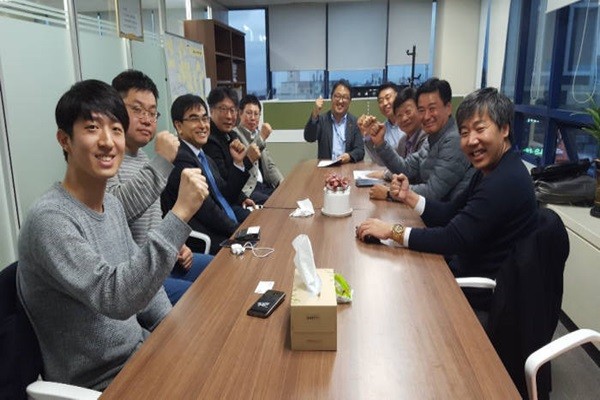Private companies, various associations and groups, and universities gathered on the 26th of October to work together in creating special zone for blockchain industry in Jeju Island. They decided to take matters into their own hands first as South Korean Government is showing unclear stance on establishment of special zone.
Korea Blockchain Startup Association, which has the most blockchain companies as its members in South Korea, and Jeju Startup Association, which is the biggest group in Jeju having about 200 companies as its members, will be signing a strategic partnership on the 2nd of November to combine their capabilities in creating special zone for blockchain industry in Jeju Island. Not only are these two associations going to set up partnership between companies located in Seoul and Jeju to expand South Korea’s blockchain industry, but they are also going to work on improving regulations such as relaxation of regulations on ICO (Initial Coin Offering), invitation of cryptocurrency exchanges, transfer of blockchain companies to Jeju Island that are necessary for blockchain hub. They are also going to have a private meeting with Governor Won Hee-ryong of Jeju Island.
“These two associations are going to carry out various businesses together and they are going to play a role of sending opinions from blockchain companies to South Korean Government.” said Chairman Yoon Hyung-joon of Jeju Startup Association. “We are also going to look at transfer of companies in Seoul to Jeju Island from medium to long-term perspective.”
First 2018 Jeju Blockchain Week was held on the 26th with Jeju Center for Creative Economy and Innovation as the host. ‘Jeju Blockchain Hackathon’ for finding private services based on blockchain and ‘Jeju Blockchain Class’ for exchanging information between participants and educating beginners were held. Various lectures such as introduction to blockchain, Smart Contract, and current status of blockchain technologies were also held.
On the same day, CEOs of Dongguk University’s FinTech CEO Process visited provincial government building in Jeju Island and held a meeting.

Dongguk University’s FinTech Industry CEO process, which was established in November of 2016, is a network that has about 220 people from promising FinTech companies such as banks, stock firms, credit card companies, saving banks, and law firms that are leading South Korea’s financial industry.
Dongguk University, which will set up master’s and doctor’s degrees courses in the future, promised to promote personnel related to blockchain industry and industry-university-and research institute cooperation.
“Core of Industry 4.0 is convergence and labor-integrated industries will be changed to intelligence-integrated industries through Big Data and blockchain.” said Professor Lee Won-boo of Graduate School of Management of Dongguk University. “We will actively support Jeju Island so that it can create a new IT ecosystem through its special zone for blockchain industry.”
Jeju Island started a process of pulling blockchain technology to industrial field. With the end of the year as the starting point, Jeju Island is going to push for a plan that will apply blockchain technology to refund of value added tax for tourists. As the moment, tourists have to write forms to receive value added taxes back and submit them to designated locations at an airport.
Jeju-si has also decided to set up South Korea’s first ‘blockchain-based tax-free goods return system’ that makes forgery and falsification of consumer data impossible and can immediately verify consumption by foreigners at stores by applying blockchain technology. Also, it is going to push for ‘carbon-free island’ business that can manage history of batteries through blockchain technology. By doing so, it will be easier to recycle batteries that are used as important parts of electric vehicles.
Besides these projects, it is also planning to push for a project that will manage land register through blockchain technology with Ministry of Land, Infrastructure, and Transport. It is also going to attempt to apply blockchain technology to management of history of agricultural and livestock products. This will eliminate every document needed for entire distribution process of livestock products.
Staff Reporter Gil, Jaeshik | osolgil@etnews.com